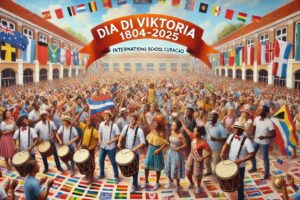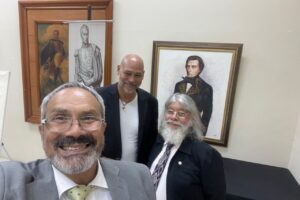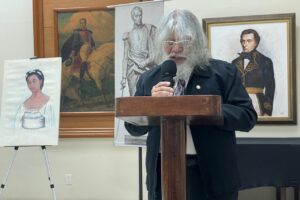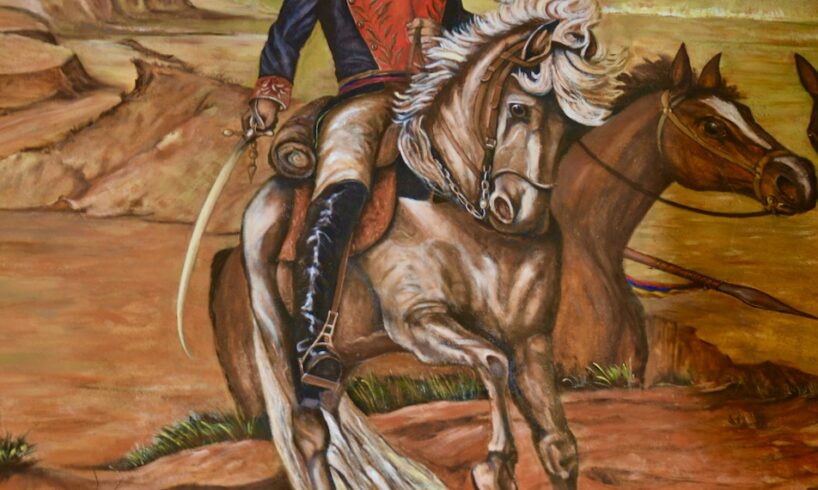
Néstor Rivero Pérez
On October 16, 1817, our history marked a somber date with the execution of Carlos Manuel Piar, a fundamental hero in our struggle for emancipation. Piar, recognized for his brave battles at Juncal and San Félix, was a pillar in the patriotic victory on April 11, 1817. This victory not only paved the way for the liberation of Guayana but also inspired our Liberator, Simón Bolívar, who was then striving to resist from the Casa Fuerte in Barcelona. It was the necessary push for Bolívar to advance south, establishing the foundation for his audacious continental projects.
A Venezuelan at Heart
Born in Curaçao in 1774, Piar felt drawn to Venezuela from a young age. At just ten years old, he connected with the land that would adopt him, actively participating in the independence movements that would shape the late 18th century. In 1812, under the command of Francisco de Miranda, he took part in crucial actions in Puerto Cabello and Sorondo, Guayana. Rising to the rank of colonel, he joined the Chacachacare group led by Mariño in 1813, fighting to liberate the eastern part of the country. Throughout those tumultuous years of emancipation, his relationship with Bolívar, Mariño, and other leaders like José Félix Ribas and José Francisco Bermúdez was fraught with challenges and conflicts.
The Role of Personalism
The disastrous campaigns of 1814 to 1816 and the beginning of 1817 led the patriots to realize the necessity of moving beyond personal ambitions and working together. In the midst of this prolonged struggle, it was vital to possess not just bravery but also tactical skills, leadership, and a clear vision to unite the necessary forces that would lead to the final victory at Carabobo in 1821.
Why Was He Tried?
The trial against Piar began when allegations of insubordination arose. On October 3, 1817, Bolívar requested Carlos Soublette, the Chief of Staff, to put Piar’s case on trial, accompanying his request with thirteen documents supporting the accusation. During those times, insubordination was seen as a mark of bravery. In an army where there was no space for cowardice, generals fought for recognition of their authority and were often unwilling to submit to a peer, even if that peer was Bolívar.
Political Reasons
On September 27, 1817, Piar was arrested near Aragua de Barcelona. The court issued a death sentence, and although Bolívar, as the Supreme Chief, had the power to commute the sentence, he chose to uphold it. Why did Bolívar opt for execution? According to Bolívar, Piar’s death secured his authority, prevented civil war, and allowed the expedition to New Granada to proceed, contributing to the creation of the Republic of Colombia. In his own words, it was “a useful, political, and deserved death.”
Final Reflections
The story of Manuel Carlos Piar is a reminder of the complexities of leadership in wartime. His execution, wrapped in controversy, invites us to reflect on the sacrifices made for freedom and the ongoing struggle for unity in a country seeking its identity. Piar’s tragic figure is essential for understanding the nuances of our history and the formation of the nation we are today.
Foot Note
This version maintains the essence of the original article while incorporating a narrative style that may resonate more with readers familiar with Curaçao’s history and cultural context.
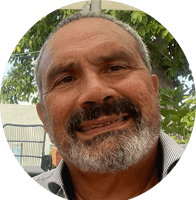
Tico Vos is a professional photographer, producer, and tourism specialist. He has been documenting the History, Culture, and News of Curaçao. This site is a documentation of the history of Manuel Carlos Piar.

